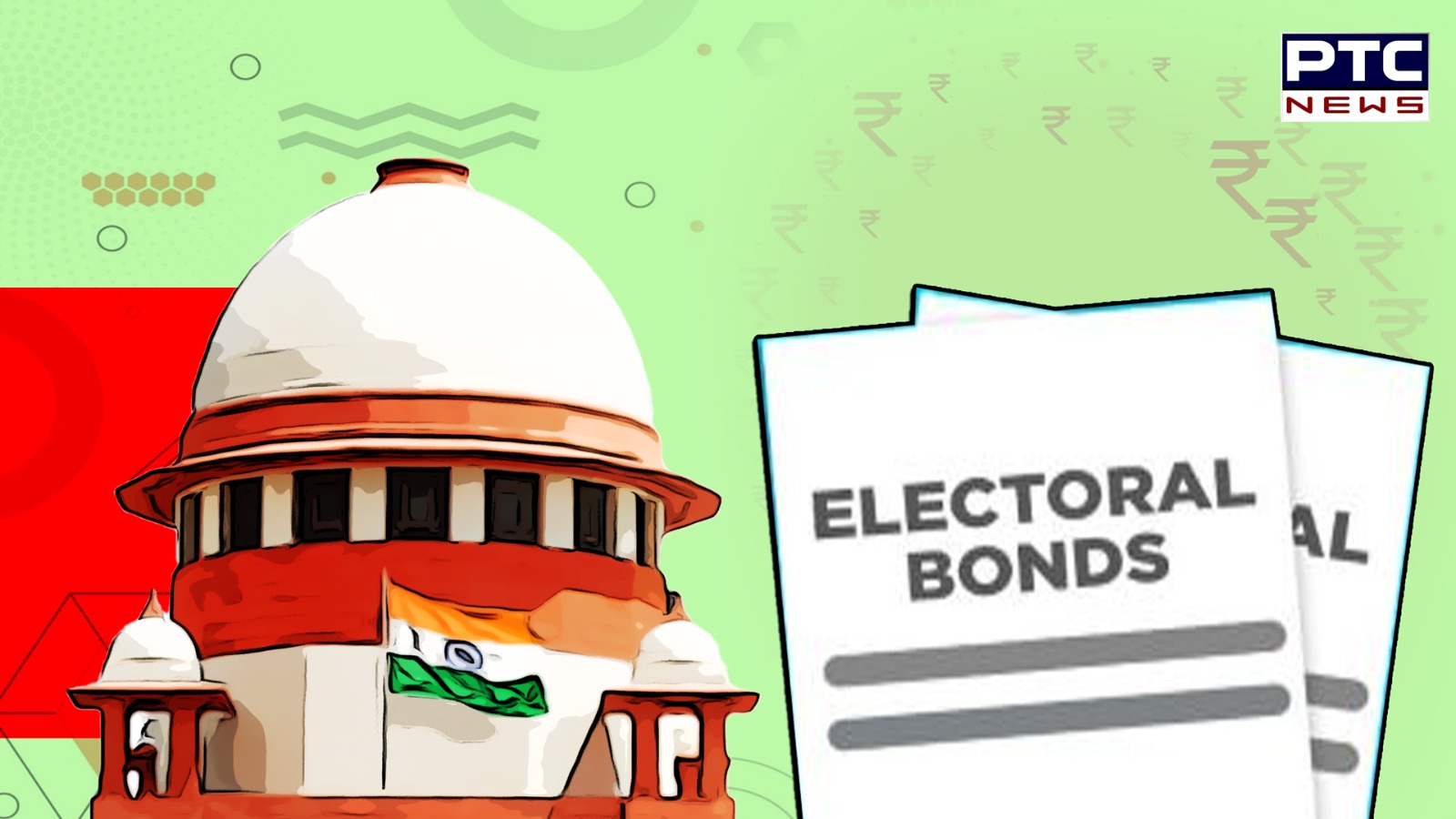

What are electoral bonds? Do they grant BJP an unfair advantage?
PTC News Desk: Electoral bonds are financial instruments designed to facilitate anonymous contributions to political parties in India. These bonds essentially function as promissory notes or bearer bonds and can be purchased by individuals or companies within the country.
Issued exclusively for the purpose of funding political parties, electoral bonds are administered by the State Bank of India (SBI). They are available in various denominations, including Rs 1,000, Rs 10,000, Rs 1 lakh, Rs 10 lakh, and Rs 1 crore.
One of the key features of electoral bonds is the anonymity they provide to donors. Individuals and corporate entities contributing funds through these bonds enjoy 100 per cent tax exemption on their donations. Furthermore, the identities of the donors are safeguarded, both by the issuing bank and the recipient political parties, ensuring confidentiality.
/ptc-news/media/media_files/2wIlKy6egdUcgJzbCOp8.jpg)
Now, regarding the question of whether electoral bonds provided the Bharatiya Janata Party (BJP) with an unfair advantage, opinions vary. Some argue that the anonymity afforded by electoral bonds could potentially allow for undisclosed corporate influence in political affairs, thereby skewing the democratic process. Critics contend that this lack of transparency undermines the principles of accountability and fairness in electoral financing.
However, proponents of electoral bonds argue that they offer a legitimate channel for individuals and corporations to contribute to political causes without fear of reprisal or undue influence. They assert that the tax benefits associated with these bonds incentivise transparent political funding while respecting the privacy of donors.
The recent decision by the Supreme Court to strike down the electoral bond scheme raises questions about its efficacy and implications for future political funding mechanisms in India. Critics view this ruling as a step towards greater transparency in electoral finance, while proponents express concerns about its potential impact on the privacy rights of donors and the functioning of political parties.
Also Read: Paytm crisis: Company's response to ED's investigation of Paytm payments bank
Also Read: Kansas city chiefs parade shooting: 1 dead, 8 children among 21 hurt
Also Read: Supreme Court annuls electoral bonds scheme ahead of elections
To make donations to a political party using electoral bonds, individuals or companies must purchase these bonds through a KYC-compliant account. After the purchase, the political parties are required to encash the donations within a specified timeframe.
It is important to note that there is no restriction on the quantity of electoral bonds that a person or company can acquire, allowing for potentially unlimited contributions to political parties.
/ptc-news/media/media_files/mBov2R2WLeLKx44QcRcX.jpg)
Under the provisions of the scheme, only political parties registered under Section 29A of the Representation of the People Act, 1951, and which obtained at least 1% of the votes cast in the previous Lok Sabha or state legislative assembly elections are entitled to receive electoral bonds.
The electoral bonds scheme was initially introduced by former Finance Minister Arun Jaitley during the 2017 Budget Session. It was later formalised in January 2018 through the enactment of money bills amending the Finance Act and the Representation of the People Act. To implement the scheme, the government made amendments to various laws including the Companies Act, Income Tax Act, Foreign Contribution Regulation Act (FCRA), and the Reserve Bank of India Act.
However, the scheme faced legal challenges with multiple petitions filed in the Supreme Court, including those submitted by the CPI(M), Congress, and various NGOs, questioning its constitutional validity. The court commenced hearing on these petitions on October 31 of the previous year. Petitioners raised concerns regarding the legality of the scheme and the potential threats it posed to democratic processes.
According to the petitioners, the electoral bonds scheme infringed upon the right to information, facilitated the misuse of shell companies, and encouraged corrupt practices. Senior advocate Kapil Sibal, also a Rajya Sabha MP, highlighted the possibility of political parties utilizing donations for purposes other than elections.
In contrast, the government defended the scheme, asserting that it promoted transparency and served as a robust deterrent against the utilisation of illicit funds in electoral processes.
Also Read: Farmers, govt prep for 3rd round of talks as protests escalate
(Inputs from agencies)
-
